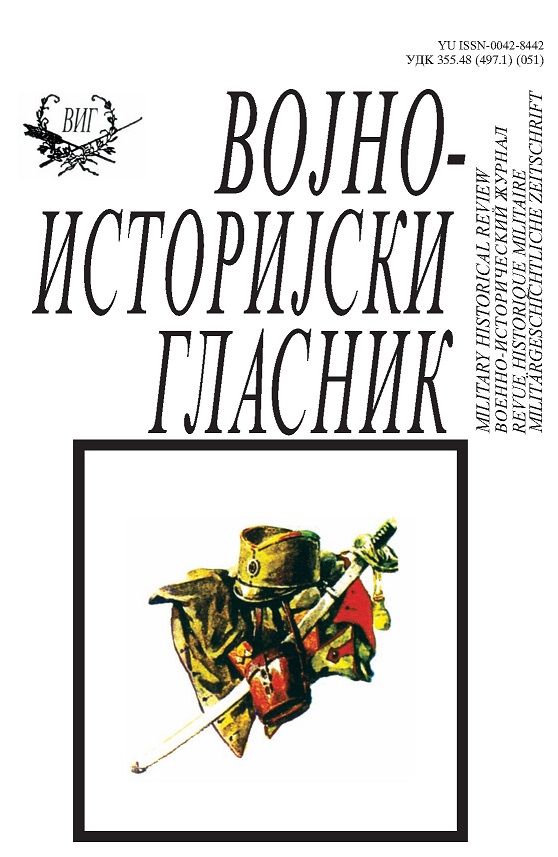Заоштравање југословенско-албанских односа у сенци совјетско-албанског сукоба (1959–1961)
Straining of the Yugoslav-Albanian Relations in the Shadow of the Soviet-Albanian Conflict (1959–1961)
Author(s): Aleksandar ŽivotićSubject(s): Diplomatic history, Political history, International relations/trade, Post-War period (1950 - 1989), Geopolitics, Peace and Conflict Studies
Published by: Institut za strategijska istraživanja
Keywords: Yugoslavia; Albania; Soviet Union; Soviet-Albanian conflict; Yugoslav-Albanian relations; allies;
Summary/Abstract: Due to the Albanian-Soviet conflict, Yugoslavia was in a very specific position. On the one hand, it was trying to re-normalize its relations with the Soviet Union, and on the other it condemned the Soviet severance of all relations with Albania, considering such a measure anachronistic and counterproductive. The Western powers were keeping an eye with great attention on the Yugoslav reactions to these events expecting a clearer Yugoslav reaction. Italy and Greece, each from the aspect of its interests, were trying to learn more about the Yugoslav plans and intentions toward Albania. However, although suffered a series of political preachings and insults, the Yugoslav government was trying to let it pass, leaving the Albanian government to the elementary fight with the eastern bloc and firm support of China, which also stood out with a very straining campaign against the Yugoslav views on the issues of development of socialism. In an atmosphere that resembled a contest between the Great Powers, Yugoslavia was trying to keep aloof. Its bilateral relations with Albania were minimized almost to the existential level. There was only a limited trade between the two countries. Although it continued with a hard propaganda against Yugoslavia, the Albanian government often tried to become closer to Yugoslavia on the wings of its conflict with the Soviets and their allies. The Yugoslav government refused such Albanian initiatives, believing that this would indirectly support Hodža’s regime and that it would sour its relations with the USSR, and the western world as well, which the Albanian regime considered completely unacceptable and unreliable for any sort of serious political cooperation. The Albanian gradual and opened linking with China and its self-isolation in comparison to neighboring countries, the Eastern bloc and the Western world countries, together with the Yugoslav more opened adherence to the „third world countries“ and vacillation between East and West caused very poor relations between Yugoslavia and Albania for many years.
Journal: Vojnoistorijski glasnik
- Issue Year: 2010
- Issue No: 1
- Page Range: 85-102
- Page Count: 18
- Language: Serbian

